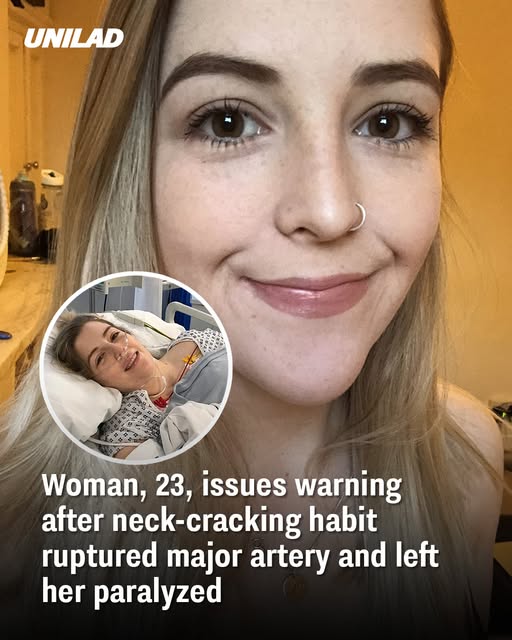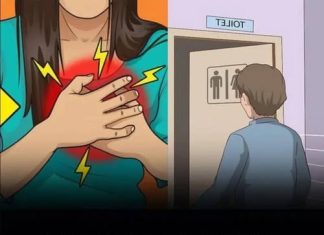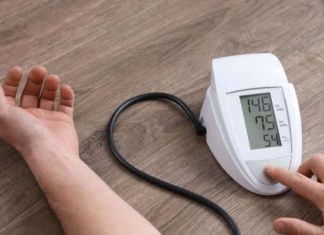For many people, cracking the neck is a casual, almost instinctive motion—a release of tension, a stretch to feel better. But for 23-year-old paramedic Natalie Kunicki, what began as a routine neck crack after a night out turned into a life-changing medical emergency. She had been watching movies in bed at home, stretched her neck, heard an unusually loud crack—and assumed nothing serious had happened.
The Unexpected Collapse
Just 15 minutes later, Natalie rose to go to the bathroom—but her leg wouldn’t move. She collapsed onto the floor, shocked by the sudden loss of mobility. Within moments, the simple motion of neck-stretching had triggered a cascade of catastrophic events.
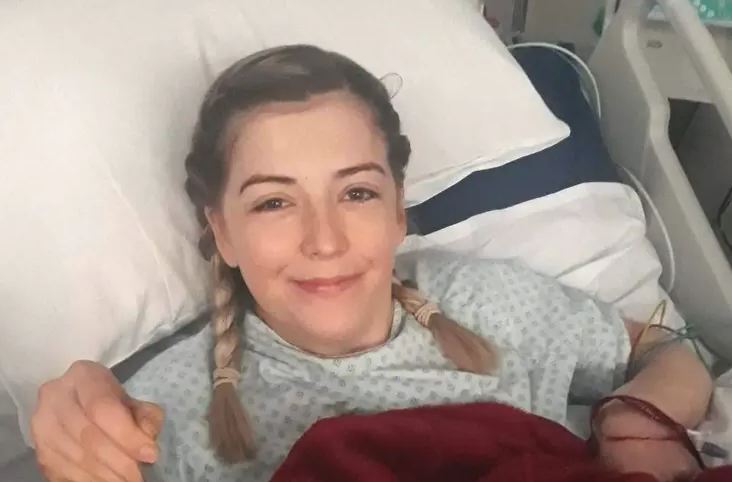
A Hidden Danger Unveiled
Once paramedics arrived—and because she works for the same ambulance service, she recognized the signs—Natalie was quickly transported to hospital. There, doctors discovered that she had ruptured her vertebral artery, one of the major arteries in the neck. A blood clot formed, oxygen was cut off to part of the brain, and a stroke followed.
Emergency Surgery and Ongoing Impact
Natalie was rushed into a three-hour surgery. Surgeons repaired the artery with a stent, but the clot in her brain could not be fully cleared. After waking she discovered the full extent of the damage: her left side was partially paralysed. She explained that she couldn’t move her thumb or forefinger, she could only slightly move her wrist, could not lift her arm, and while she could bend her leg she couldn’t wiggle her toes.
The Long Road to Recovery
After months of rehabilitation, Natalie regained some movement on her left side, but the effects are still very real. She cannot walk for more than five minutes at a time and still lives with the consequences of the stroke. She had expected that after surgery everything would return to normal—but that was not the case.
Raising Awareness Among the Young
In spite of the rarity of her case—she described it as “one in a million”—Natalie is determined to share her story. She warns: even though you are young and healthy, actions you might think are harmless can carry serious risk. She highlights that a ruptured vertebral artery is actually a relatively common cause of strokes in younger people—it can happen during physical activity, gym work or even routine movements.
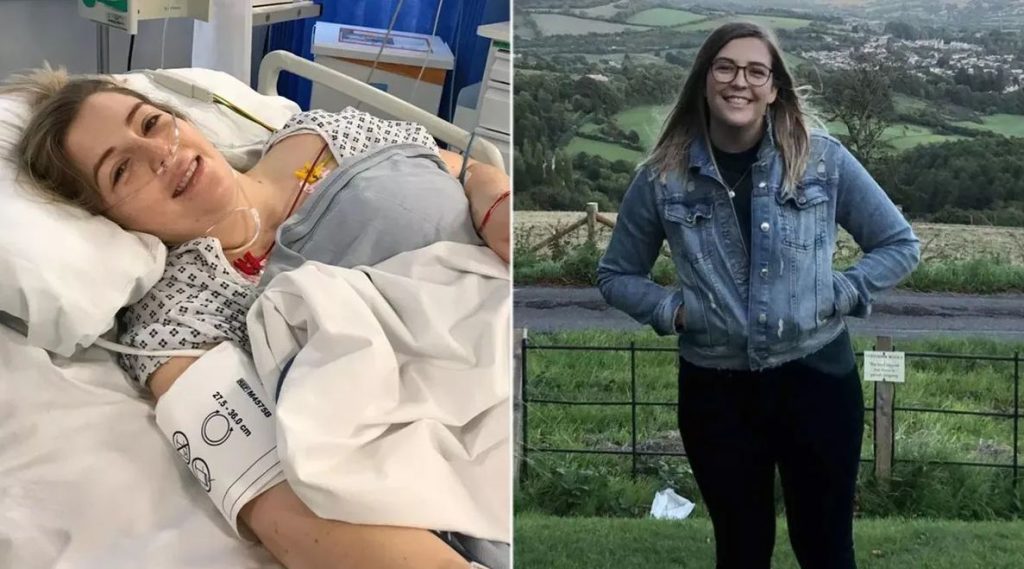
Lessons for Everyone
There are several take-aways here. First: a sudden loud crack in the neck shouldn’t always be dismissed. If followed by numbness, weakness, speech problems or mobility issues, immediate medical attention is essential. Second: young people are not immune to strokes. The assumption that stroke is only an elderly person’s condition can delay recognition and treatment. Third: in doubt, call emergency services—even if you feel embarrassed or think your symptoms are minor. Natalie hesitated to call 999 (UK emergency number) because she didn’t want her colleagues to arrive and find her tipsy—but by the time she did call, valuable time was lost.
Final Thoughts
Natalie’s story reminds us that ordinary habits—like cracking your neck—can unexpectedly trigger severe medical events. Awareness, prompt recognition, and swift medical intervention matter. If you ever feel a strange pop or crack in your neck followed by any loss of function, don’t ignore it. If someone you know shows sudden weakness on one side, difficulty moving, or other stroke-like symptoms—consider the possibility and act fast.

